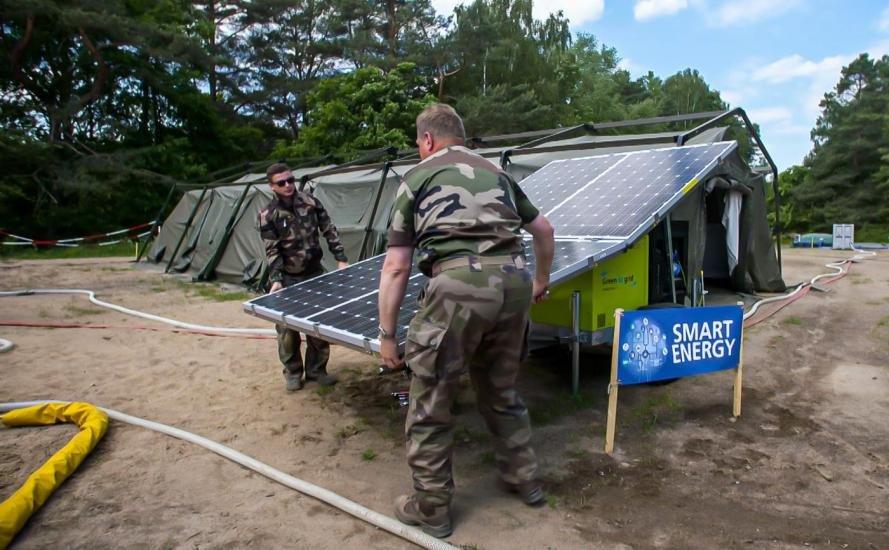Atlantica Magazine
Young professionals are often an unheard voice in policy discussions. More often than not, however, it is their insights that we need to break hardwired, outdated ideas about foreign policy and transatlanticism. Atlantica aims to amplify the voices of the young generation of transatlanticists. Our team is committed to publishing your article. Each issue features three articles per month on a theme selected by the Atlantic Forum team, in conjunction with NATO’s Public Diplomacy Division.
Find our latest
Atlantica publications here:

Translating War’s Grammar into the Language of Peace: NATO, Disinformation, and the Future of Conflict
From the United States to the Baltics, the spread of disinformation has become a rising concern to NATO member states as adversary-backed information warfare has become a more recognized tactic of grey zone or below-threshold incursions. These disinformation campaigns, launched most often by Russia and China, present an unconventional and asymmetrical threat to NATO by blending in with domestically generated content on social media and raising complex legal and political questions regarding the role of the state in intervening in privately-owned platforms. These disinformation campaigns have also increased the political polarization present within many NATO countries, introducing more uncertainty into military structures controlled by civilian governments. This paper will argue that the effectiveness of these disinformation campaigns is the result of both member states' political-legal frameworks for regulating Internet content and their divided societies. Borrowing from Carl von Clausewitz's writings on war as a clash of wills, this paper will also argue that the proliferation of disinformation will weaken the military preparedness of the Alliance by degrading the will of its member states to use military force, a key aspect of NATO's deterrence model. As such, this paper will conclude by offering a potential solution based on utilizing NATO's partnerships, namely replicating Sweden's Psychological Defence Agency across member states.

Explaining disinformation? There’s a far better way to do that!
The disinformation problematique has seriously influenced policy, academic, and public debates. The disinformation phenomenon became especially significant after the illegal annexation of Crimea in Ukraine, which has since tremendously reshaped the global security environment. Disinformation, along with many other hybrid instruments, has been blooming in European society, and consequently, the people consuming it have grown increasingly hostile to their democratic settings, government, NATO, or the EU. Therefore, it is crucial that the NATO 2030 agenda perceives resilience as one of its core tasks. But, how can we effectively enhance resilience towards disinformation? This article will examine the relevance of the behavioural approach and its application to policies in NATO and other international organizations that aim at countering disinformation.

Thoughts on the Climate and Security Centre of Excellence
Climate change is one of the defining security challenges of our time. This often-repeated phrase has been established repeatedly.

Possible Military Responses to the Climate-Security Nexus
The consequences of climate change can be widely felt around the globe.

The Climate and Security Centre of Excellence: Canada's Opportunity for Climate Security Leadership
“Climate Change is one of the defining challenges of our time, with global impacts affecting all countries. A Canada-hosted COE on Climate and Security would respond to an identified Alliance priority to better understand, adapt to, and mitigate the security implications of climate change. This COE would also facilitate the exchange of expertise among Allies, build capacity to address the security implications of climate change, and help advance our ongoing efforts to reduce the climate impact of our military activities.” [i]
-The Right Honourable Justin Trudeau, Prime Minister of Canada

NATO Support and Procurement Agency: Best Practices on Environmental Protection and Energy Efficiency for the Defence Industry
“Since its inception, NATO has done more than any other multilateral organization to promote democracy, peace, and security in Europe and the broader transatlantic community with benefits that have rippled out to the broader global community. Ensuring that NATO can face the challenges of the 21st century while safeguarding and vitalizing collective defense – the heart of the Alliance – is the charge of the upcoming reflection period.”[i]
— Luke Coffey and Daniel Kochis , The Heritage Foundation

The Atlantic Vision for an AI Future
“The Mechanical Turk” was an early form of AI, invented in 1770. It became famous for its ability to play chess with equal skill to known champions of its time, and it even ended up playing against celebrities like Napoleon and Benjamin Franklin. It was exhibited around the world for almost a century until its accidental destruction in a fire in 1854. Why is this miscellaneous historical artefact relevant to an article about AI? Well, the Mechanical Turk was a hoax; the secret was that a chess player would play from inside the machine.
Coincidentally, Mturk.com (short for Amazon Mechanical Turk) is the name of the “chess player” behind AI.

To what extent will the employment of Artificial Intelligence in Remotely Piloted Aircraft Systems help us overcome the existing vulnerabilities in modern warfare?
“Predicting the future isn't magic - it's artificial intelligence.”
— Dave Waters

NATO and Russia: Is there space for dialogue?
After the end of the Cold War in 1991, NATO adopted the New Strategic Concept, which called for cooperation with former adversaries to strengthen security throughout Europe. As Russia became a successor of the Soviet Union, NATO looked for different kinds of cooperation paths.

Contemporary military focuses of Zapad 2021 and NATO's response
Zapad (“West”) is Russia’s traditional large-scale military exercise. Its main goal is to improve the practical skills of commanders and staff for strategic operations with Russian coalition forces concerning its Western strategic orientation. Initially, Zapad was conducted among former Warsaw Pact countries. Today, it is carried out among the Regional Group of Force for Russia and Belarus.
The situation of the region in 2021, however, is entirely different compared to previous years. In this article, I will analyze the leading contemporary military focuses of Zapad 2021 and provide recommendations on how NATO can improve its enhanced Forward Presence (eFP) program in light of these changes.